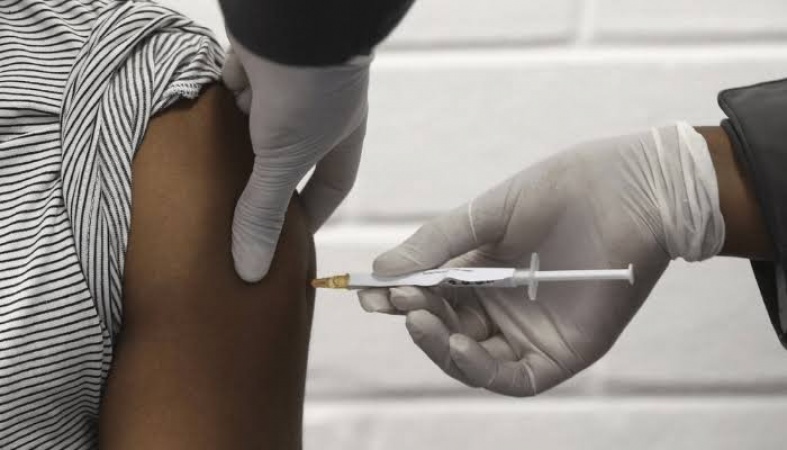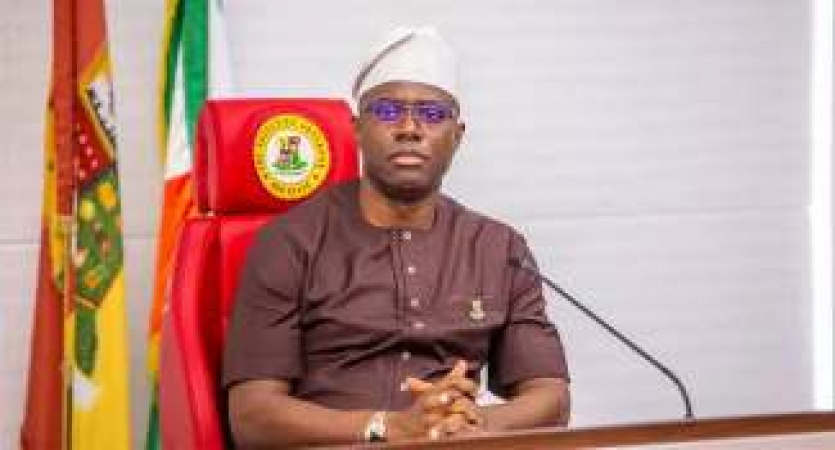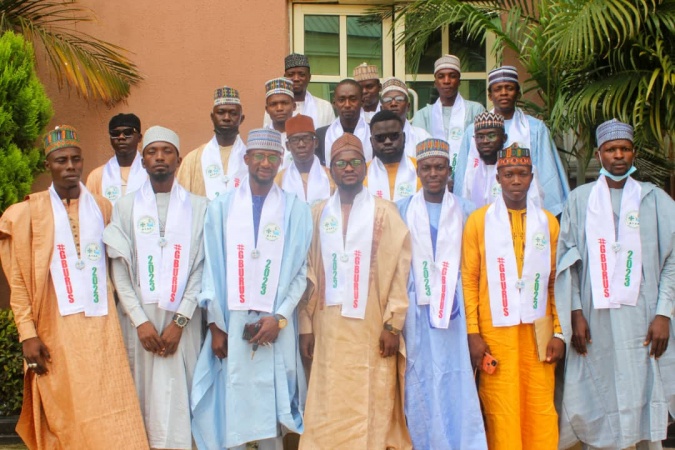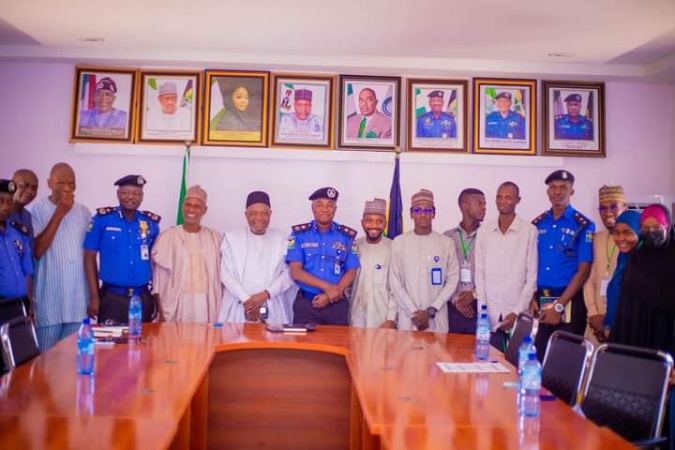OOU Conference: Experts advocate indigenous model to sustainable development in Nigeria
Posted by Ahmed Iyanda | 9 months ago | 845 times
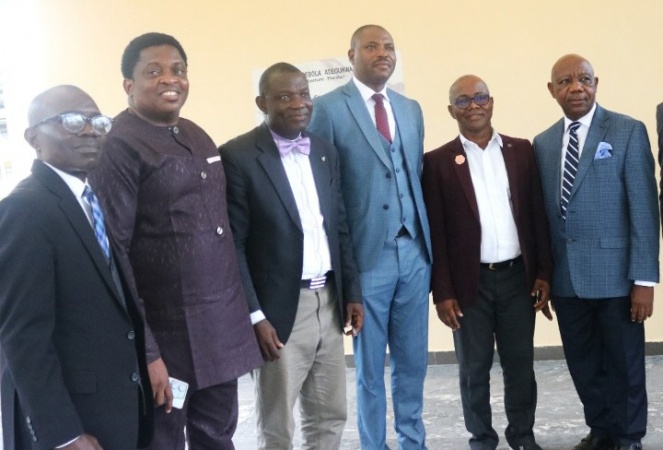
L-R: Idowu Adegbite, Chairman, Fundraising Committee; Prof. Richard Aborisade, Chairman, Local Organising Committee; Prof. Dele Odunlami, Dean, Facult
Experts in the education sector have advocated that Nigeria can attain sustainable development through the instrumentality of indigenous knowledge and constitution.
The two key note speakers at the International Conference on Law and Society at Olabisi Onabanjo University, Ago Iwoye were unanimous on the adoption of indigenous approach to Nigeria's development.
Speaking on the theme Law, Society and Sustainable Development, Prof. Olatunji Ogunyemi of University of Lincoln, United Kingdom, and Prof. Babatunde Oni, SAN, of Lagos State University, Nigeria excuses that Nigeria needs to domesticate the provisions of the sustainable development goals for effective implementation. "We are supposed to own our constitution to decide the way we want to develop", Prof. Oni said. According to Prof. Ogunyemi, "There is the need to bring indigenous languages into our classrooms" to accelerate our national development.
These were the submissions of the speakers at the First International Conference on Law and Society organized by Faculties of Law and Social Sciences of Olabisi Onabanjo University between July 1 to 4, 2024.
Scholars suggested protection of the rule of law enforced by independent judiciary, and an environment of a fair and equitable legal system as some of the ingredients of sustainable development in the country.
They added that to achieve this, there is a need for active engagement of members of the society in governance, Separation of Powers and Accountability, Independence of INEC, as well as ensuring total independence of the judiciary arm of government without infiltration by either the executive or the legislative.
The 1st Keynote speaker, Prof. Babatunde Oni, SAN, noted that good governance is pivotal for sustainable development in any country.
Speaking on the topic “Law, Good Governance and Sustainable,” the University Don said the growth and development of a country starts from good leadership.
“Good governance starts from a recognition that the nation, institution or enterprise is operated for the benefit of everyone with an obligation of accountability.”
He added that Leaders are entrusted with authority to manage in order to deliver benefits to the people but they must have the courage, humility and self-control to put in place checks on their authority.
According to him, the functions of law are to cultivate and ensure the existence of adequate order, provide resolutions to conflicts, provide a safe haven for individuals and their assets, among others.
Oni said, “In Nigeria, there are various laws that regulate the people and transactions. The 1999 Constitution of the Federal Republic of Nigeria (as amended) is the grund norm law in which any other law which conflicts with the constitution is declared null. The 1999 Constitution specifically makes provision for governance as entrenched in Chapter II of the 1999 Constitution.”
“Chapter II specifically provides for socio-economic rights which makes provisions like; ‘the security and welfare of the people shall be the primary purpose of government’, ‘it shall be the duty of the state to provide adequate facilities for and encourage free mobility of people, goods and services throughout the federation’, the state shall direct its policy towards ensuring that: ‘the health and safety of all persons in employment are safeguarded’, ‘there are adequate medical and health facilities for all persons’, ‘free, compulsory and universal primary education.”
The Professor of Law maintained that the provisions in Chapter II of the constitution are not justiciable, adding that the Section 6 (6) (c) of the Constitution declares that Chapter II which embodies the Socio-Economic rights and is the essence and core of governance is not justiciable.
Speaking further, he highlighted accountability, transparency and trust; Independent of the Electoral Commission; Favoritism and Nepotism; Insecurity and Corruption are the ills and characteristics associated with bad governance.
To ensure good governance for sustainable development, Oni mentioned that active engagement of members of the society in governance, Separation of Powers and Accountability, Independence of INEC, and judicial autonomy should be prioritized.
“Laws should be established based on the consent and participation of the people. Since the majority of our laws were adopted from the colonialist, Nigerians do not feel connected to some of these laws. However, this can be rectified by the government in ensuring active participation of the people in the law- making process.”
Also, to ensure good governance, the doctrine of separation of powers and accountability is highly important. The purpose of separation of powers is to prevent the concentration of power and provide for checks and balances.
“The primary requirement for ensuring citizen’s demand for accountability in Nigeria under a democratic rule is the sanctity of the citizens’ votes.”
“The legislative should also consider making amendments to the Constitution that makes the disregard of the separation of powers an impeachable offense,” he added.
In his keynote address, Olatunji Ogunyemi, a professor of journalism at the school of Film, Media and Journalism, University of Lincoln, U.K, enjoins arts, social science and humanities to prioritize the inclusion of the SDGs in curricula.
He maintained this while speaking on the topic “Integrating SDGs into Arts, Social Science and Humanities: A Pedagogical Approach.”
Citing the World Meteorological Organization (WMO) 2023, it states that “the world is far from meeting its climate goals and this is seriously undermining efforts to tackle hunger, poverty and ill-health, and improve access to clean water and energy, as well as many aspects of sustainable developments.”
Olatunji mentioned that Financial inclusion can help reduce the menace of SDG1(poverty), noting that over 2 million across the globe do not have bank accounts.
Also, ICT can promote SDG 3(good health and wellbeing) through direct patient interaction, health informatics and telemedicine.
However, the barriers to including SDGs in the curricula are accreditation issues, lack of time and resources, lack of specialist knowledge of the topic, among others.
While declaring the conference open, the Vice Chancellor of Olabisi Onabanjo University, Prof. Ayodeji Johnson Agboola represented by the Provost of Postgraduate School, commended the two faculties for the giant stride, adding that "We belong to the society and there is need to be guided by its treaties for the law of the land to be operated as expected to promote human right, good governance and sustainable development".
Addressing the media during the programme, Prof. Ayodele Odunlami, Dean of Faculty of Social Sciences explained that Nigeria is blessed with abundant novel ideas for national development, while Dr. Gbade Akinrinmade, Dean of Faculty of Law called on Nigerians to respect the law of the land as this would facilitate timely national development.

